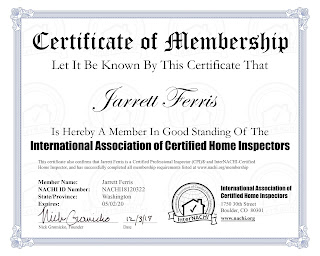Be Careful When Referring to Yourself as an Expert in the Home Inspection Industry...
Carelessness
When an inspector declares to be a "specialist," a court might hold the inspector to a higher requirement. This is especially real if the inspector claims to be a specialist in a particular element of house examinations, such as the evaluation of log houses. 1985), an insurance coverage firm held itself out as a professional in specific types of insurance coverage matters.
Even if a court of law does not hold an inspector to a higher standard, calling yourself a specialist produces other prospective legal claims.
Misleading Trade Practices
These statutes typically enable an effective complainant to recuperate treble damages, as well as lawyer's charges and court expenses. In some jurisdictions, house inspectors are thought about experts and are exempt from the misleading trade practices act, however in other jurisdictions, they are not.
Breach of Contract
Holding yourself out as a professional contributes to affecting possible consumers to select you. A dissatisfied consumer might declare that you breached the agreement by stopping working to supply the knowledge you said to have if an issue develops after your assessment.
Misstatement
In addition to any neglect, agreement or statutory claims that a dissatisfied consumer might assert versus you, s/he might likewise declare the tort of misstatement. You might be responsible for misrepresentation if you make a false declaration, the declaration is the product, and the consumer relies on your statement to his or her hinderance.
Guarantee Claims
It is even possible that a court might hold that by stating yourself a specialist, you made an indicated service warranty to the consumer worrying the quality of your services.
How a Lawyer Can Use Your Claim of Expertise Against You
When all the testament has actually existed, the judge will advise the jury on the law. This might consist of a direction that a "professional" is held to a greater requirement of care.
You will be held to the claims you make about yourself in your marketing products. You 'd much better stand all set to show that you are if you declare you are a specialist in something. And it is particularly hazardous to declare you are a "specialist" if you aren't able to indicate proof that you are because, unlike the other defensible adjectives and descriptions-- such as Certified Master Inspector ®, "certified," "guaranteed," and so on, which have clear market meanings-- what makes you a professional?
Next, come the opening declarations. When the complainant's lawyer speaks with the jurors, you can wager the opening declaration will consist of something like this: "In reality, the proof will reveal that the inspector confessed that he selected to explain himself as a 'specialist' to encourage my customer to select him. You will see pages from the inspector's site, where he consistently declared to be a 'specialist.'".
The enjoyable merely is starting because, at some point, you will be called to affirm, and that attorney is going to ask you all the very same concerns you were asked throughout your deposition.
In the extremely competitive world of house assessments, inspectors naturally desire to encourage possible clients to select them. Stating yourself a "specialist" comes with threats.
Now, expect the case does not settle, and the jury choice procedure will start. When the complainant's attorney begins to question the prospective jurors, among the concerns the attorney will ask is, "What does the word 'specialist' imply to you?" The attorney does not care that much how each prospective juror addresses the concern-- he's attempting to plant the seed of doubt in the minds of the possible jurors that you ought to be held to a greater requirement.
When the client submits the suit, their legal representative will depose you. The attorney will ask you to look at each one and validate that you produced those things. The attorney will ask, "But you did not do that, did you?"
The consumer signed an agreement before you carried out the assessment. Your consumer acquired the house and later on found a supposed flaw. Now, the dissatisfied customer has actually sued you.
It will be time for closing arguments. You can be sure that the complainant's closing argument will consist of the word "specialist" a lot of times.
Conclusion.
Make certain your claims about yourself are defensible.



Comments
Post a Comment